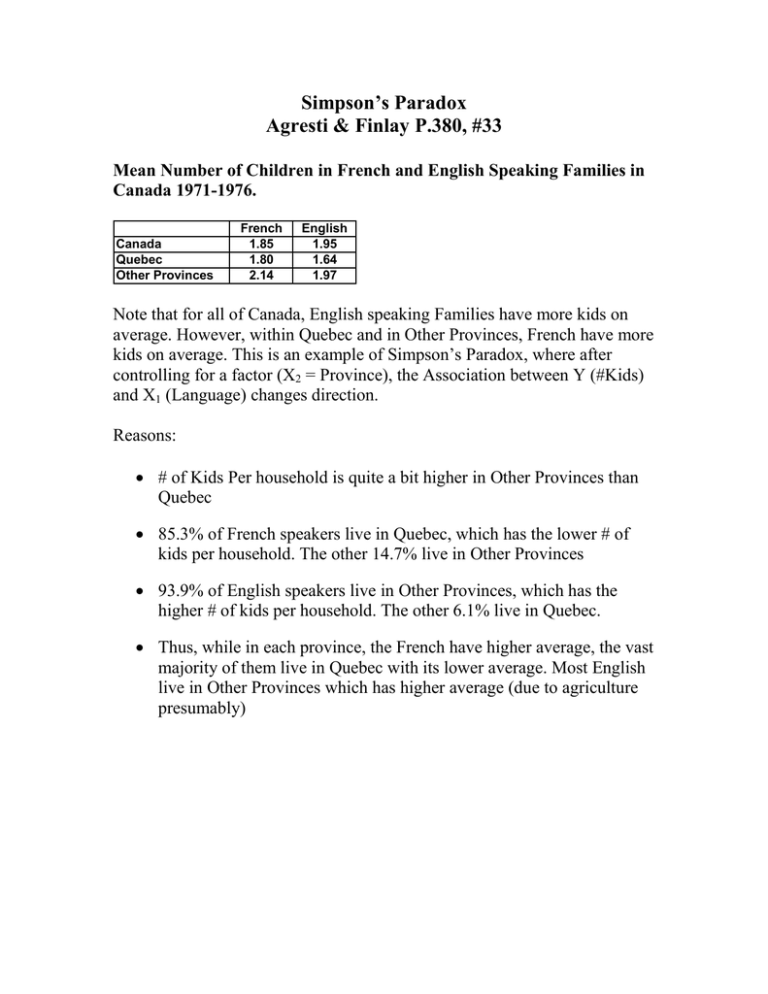Simpson's Paradox - Canadian Children per Household
advertisement

Simpson’s Paradox Agresti & Finlay P.380, #33 Mean Number of Children in French and English Speaking Families in Canada 1971-1976. Canada Quebec Other Provinces French 1.85 1.80 2.14 English 1.95 1.64 1.97 Note that for all of Canada, English speaking Families have more kids on average. However, within Quebec and in Other Provinces, French have more kids on average. This is an example of Simpson’s Paradox, where after controlling for a factor (X2 = Province), the Association between Y (#Kids) and X1 (Language) changes direction. Reasons: # of Kids Per household is quite a bit higher in Other Provinces than Quebec 85.3% of French speakers live in Quebec, which has the lower # of kids per household. The other 14.7% live in Other Provinces 93.9% of English speakers live in Other Provinces, which has the higher # of kids per household. The other 6.1% live in Quebec. Thus, while in each province, the French have higher average, the vast majority of them live in Quebec with its lower average. Most English live in Other Provinces which has higher average (due to agriculture presumably)



